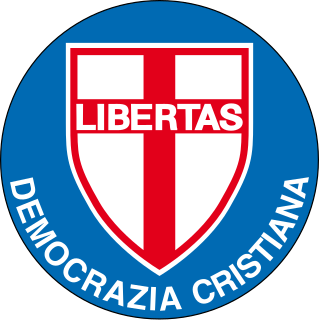This page is based on this
Wikipedia article Text is available under the
CC BY-SA 4.0 license; additional terms may apply.
Images, videos and audio are available under their respective licenses.

The Rose in the Fist was a political alliance of parties in Italy.

Francesco "Franco" Giordano is an Italian politician.
The Association for the Rose in the Fist was a social-democratic political association in Italy. It was the so-called "third component" of the Rose in the Fist (RnP), a political alliance composed mainly of the Italian Democratic Socialists (SDI), a social-democratic party, and the Italian Radicals (Rad), a liberal movement.

The fall of Communism in Albania, the last such event in Europe outside the USSR, started in earnest on December 1990 with student demonstrations in the capital, Tirana, although protests had begun earlier that year in other cities. The Central Committee of the communist Party of Labour of Albania allowed political pluralism on 11 December and the largest opposition party, the Democratic Party, was founded the next day. March 1991 elections left the Party of Labour in power, but a general strike and urban opposition led to the formation of a "stability government" that included non-communists. Albania's former communists were routed in elections in March 1992 amid economic collapse and social unrest, with the Democratic Party winning most seats and its party head, Sali Berisha, becoming president.

Massimo D'Alema is an Italian politician who was the 53rd Prime Minister from 1998 to 2000. Later he was Deputy Prime Minister and Minister of Foreign Affairs from 2006 to 2008. He is also a journalist and served for a time as national secretary of the Democratic Party of the Left (PDS).
Sometimes media refers to him as Leader Maximo, due to his first name Massimo, but also for his dominant position in the left-wing coalitions during the Second Republic. Earlier in his career he was a member of the Italian Communist Party, and he was the first former communist to become prime minister of a NATO country and yet the only former communist prime minister of Italy.

The Piedmontese regional election of 1985 took place on 12 May 1985.

The Emilia-Romagna regional election of 1975 took place on 15 June 1975.

The Emilia-Romagna regional election of 1980 took place on 8 June 1980.

The Ligurian regional election of 1985 took place on 12 May 1985.

Tuscan regional election of 1985 took place on 12 May 1985.

The Umbrian regional election of 1985 took place on 12 May 1985.

The Sardinian regional election of 1984 took place on 24 June 1984.

A referendum on abolishing the wage escalator was held in Italy on 9 June 1985. The escalator allowed for the automatic growth of the salaries of Italian workers at the same rate as inflation. This mechanism was accused of causing high inflation which damaged the lira during the 1980s, with a 20% annual rate. Voters were asked whether they wanted to repeal a law passed by the government of socialist Prime Minister Bettino Craxi which had strongly reduced this automatic mechanisms. The referendum was called by the Italian Communist Party. Those voting "yes" wanted to restore the automatic growth of the salaries as the inflation ratio, and those voting "no" wanted to retain the law which tried to reduce the high inflation.

The Italian regional elections of 1985 were held on May 12. The fifteen ordinary regions, created in 1970, elected their fourth assemblies.

Proletarian Democracy was a far-left political party in Italy.

The Communist Refoundation Party is a communist political party in Italy, emerged from a split of the Italian Communist Party (PCI) in 1991. The party's secretary is Maurizio Acerbo, who replaced Paolo Ferrero in 2017. Armando Cossutta was the party's founder, while Fausto Bertinotti its longest-serving leader (1994–2008). The latter transformed the PRC from a traditional communist party into a collector of radical social movements.
Maurizio Acerbo, is an Italian politician and the current Secretary of the Communist Refoundation Party.

Filippo Bubbico is an Italian politician, President of Basilicata from 2000 to 2005.


















